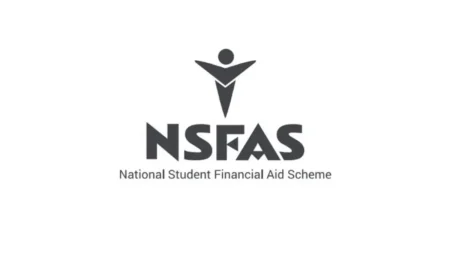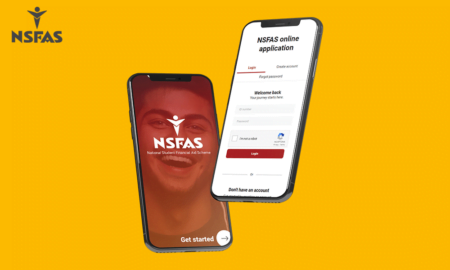Many South African students rely on NSFAS allowances to cover essential expenses like accommodation, transport, and food. However, NSFAS Allowance Delays are a recurring issue, leaving students financially stranded. If you are one of the many affected students, don’t panic. There are several reasons why your payment may be late, and in most cases, there are steps you can take to resolve the problem.
In this guide, we will discuss the possible causes of NSFAS Allowance Delays, provide solutions to fix the issue, and offer tips to prevent future delays.
What Causes NSFAS Allowance Delays?
Understanding the reasons behind NSFAS Allowance Delays can help you take the right steps to resolve them. Here are the most common causes:
1. Verification and Processing Issues
Before NSFAS releases payments, they verify student details, academic registration, and funding eligibility. If there are any inconsistencies, payments may be delayed.
2. Late Registration at Your Institution
If your university or TVET college has not confirmed your registration, NSFAS will not process your allowance.
3. Incorrect or Outdated Banking Details
Students who use the NSFAS Bank Account or receive funds via their institution need to ensure their banking details are correct. If there are errors, NSFAS will not process the payment.
4. Technical and Administrative Errors
Sometimes, system errors or delays in batch processing lead to NSFAS Allowance Delays. In such cases, NSFAS usually provides updates through their official channels.
5. NSFAS Wallet or Bank Issues
If you use the NSFAS Bank Account, transactions may take longer to reflect due to internal banking procedures.
6. Pending Appeals or Reviews
If your funding status is under review or you have submitted an appeal, your allowance will only be paid once the process is complete.
What to Do If You Haven’t Been Paid?
If you are experiencing NSFAS Allowance Delays, follow these steps to resolve the issue:
Step 1: Check Your NSFAS Payment Status
Log in to your myNSFAS account to check the status of your payment.
- Visit www.nsfas.org.za.
- Click on “myNSFAS” and log in.
- Navigate to the “Payment” section to see if funds have been disbursed.
If your status shows “Payment Pending”, it means the funds are being processed and will be released soon.
Step 2: Confirm Your Registration with Your Institution
If NSFAS has not confirmed your registration, your allowance will not be processed. Visit your institution’s student finance office to check if your registration has been sent to NSFAS.
Step 3: Verify Your Banking Details
- If you use the NSFAS Bank Account, ensure your details are correctly registered.
- If you receive funds through your institution, confirm that they have processed the payment.
Step 4: Contact NSFAS Directly
If you still haven’t received your allowance, contact NSFAS via:
- Call Centre: 0800 067 327
- Email: info@nsfas.org.za
- Social Media:
When contacting NSFAS, provide your NSFAS Reference Number, full name, and student number.
Step 5: Visit Your Campus Financial Aid Office
If NSFAS is unresponsive, your institution’s financial aid office may assist in escalating the issue.
Step 6: Check for System-Wide Delays
Sometimes, NSFAS announces system-wide NSFAS Allowance Delays due to processing backlogs. Follow their social media pages for updates.
Step 7: Submit an Appeal (If Necessary)
If your funding has been stopped or rejected, you may need to submit an appeal. Log into myNSFAS, navigate to the appeals section, and upload the required documents.
Related: NSFAS Banking Details Verification: Step-by-Step Guide for Students
How to Prevent Future NSFAS Allowance Delays
To avoid NSFAS Allowance Delays in the future, follow these best practices:
Update Your NSFAS Details Regularly
Ensure that your contact details, banking information, and student records are always up to date on the myNSFAS portal.
Complete Registration on Time
Early registration at your institution ensures that NSFAS receives your confirmation quickly.
Maintain Good Academic Standing
If you do not meet NSFAS’s academic requirements, your funding may be suspended.
Monitor NSFAS Announcements
Stay informed by following NSFAS on social media and checking your email regularly.
Save a Small Emergency Fund (If Possible)
If feasible, set aside some savings to help you manage expenses in case of NSFAS Allowance Delays.
Experiencing NSFAS Allowance Delays can be stressful, but most delays can be resolved by checking your NSFAS payment status, confirming your institution registration, updating your banking details, and contacting NSFAS directly if needed.
If delays persist, escalate the issue through your campus financial aid office or NSFAS’s official communication channels.
By staying proactive and following the steps in this guide, you can minimize the impact of NSFAS Allowance Delays and ensure you receive your funds on time.










